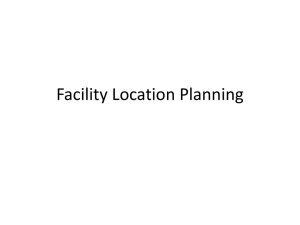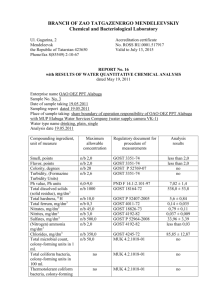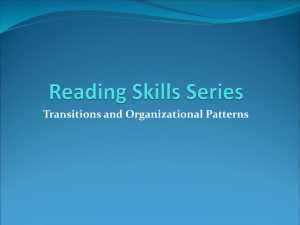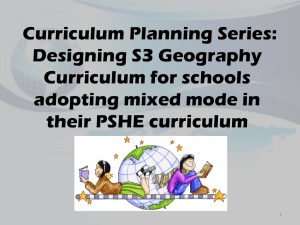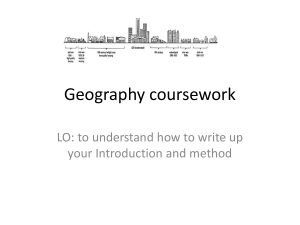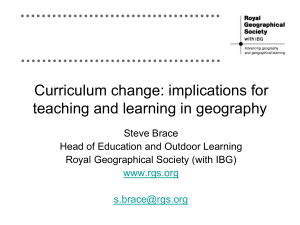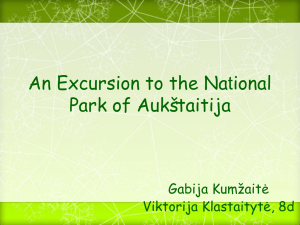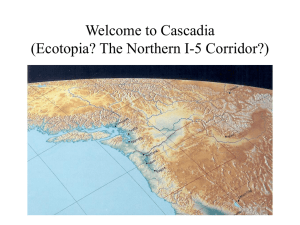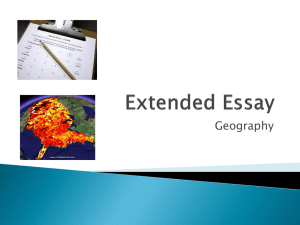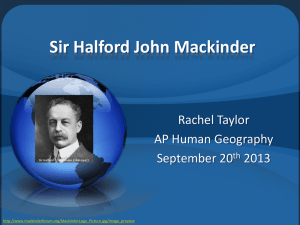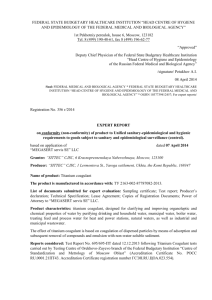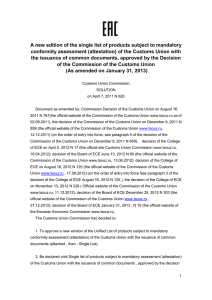Teis Hansen and Lars Coenen - Low Carbon Innovation Politics
advertisement
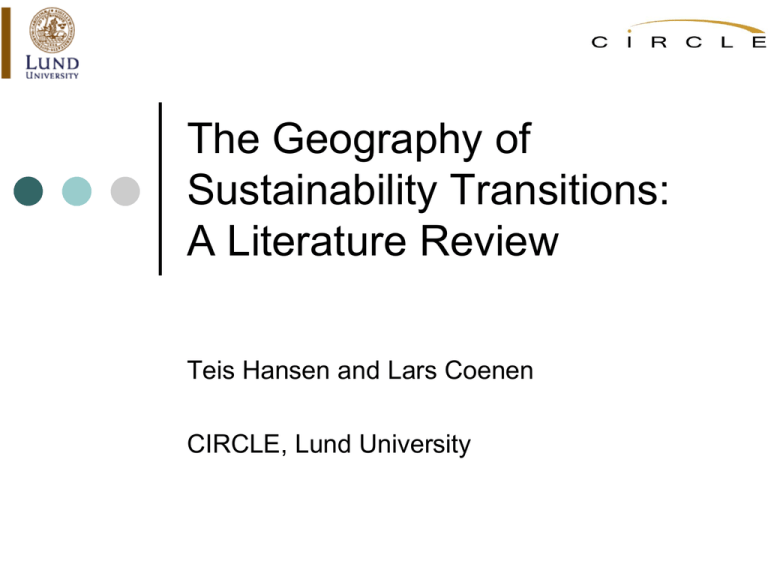
The Geography of Sustainability Transitions: A Literature Review Teis Hansen and Lars Coenen CIRCLE, Lund University Core GoST research agenda Understand whether and why transition trajectories unfold unevenly across space Analyze how the spatial dimensions of networks (local-global) influence transitions processes Analyze the governance of transitions at and across different scales Purpose of review Overview of research on GoST How is space conceptualized in GoST literature? Which empirical and theoretical insights have been achieved so far? Which areas should be further developed in the future? Spaces and niches Metaphorical use of geographical concepts in much niche literature Unclear/unmotivated why ’spaces’ Unnecessary confusion & relegation of niche creation and development in spaces Purpose of review Overview of research on GoST How is space conceptualized in GoST literature? Which empirical and theoretical insights have been achieved so far? Which areas should be further developed in the future? Space in geography “Trying to think clearly about space is not easy.” (Dainton, 2001, p. X) Positivist geography: space as an empty container Relational turn: space is constructed through social relations between actors Evolutionary turn: space is neither fully fixed nor fully fluid (1) the importance of geographical context (2) the role of spatial linkages Geographical context Urban and regional visions and priorities (e.g. Hodson and Marvin, 2009) Informal territorial institutions (e.g. Coenen, Benneworth, and Truffer, 2012) Local natural resource endowments (e.g. Späth and Rohracher, 2012) Local technological and industrial specialization (e.g. Carvalho, Mingardo, and Van Haaren, 2012) Localized knowledge spillovers (e.g. Essletzbichler, 2012) Consumers and local market formation (e.g. Dewald and Truffer, 2012) Geographical context – future research areas 1) Neglected topics. In particular local market formation 2) When and under which conditions are the different contextual dimensions important for sustainability transitions? “In situations where tacit knowledge is important, institutions [in their broadest sense as recurrent patterns of rules, behavior, habits, conventions, and routines (see Morgan, 1997)] are more than mere aggregate results of conscious decisions of individual actors. Institutions are able to stabilize, transmit, and contain tacit knowledge in communities of actors (be it sectors or regions).” (Truffer, 2008; 969) Geographical context – future research areas 1) Neglected topics. In particular local market formation 2) When and under which conditions are the different contextual dimensions important for sustainability transitions? 3) The changing role of the urban and regional levels Scale in inter-organisational linkages Two main approaches: (1) Studies with a traditional economic geography focus, stressing the positive influence of geographical proximity in stimulating network formation (2) Studies which draw heavily on the relational approach, highlighting that space is socially defined Scale in inter-organisational linkages – future research areas 1) Further explore the role of relations at various scales for transition processes 2) The importance of geographical proximity for linkages between agents at different levels in the multilevel framework Back to space and niches… Niche experiments: large cognitive distance between actors Potentially compensated by: Social proximity (trust) Geographical proximity (F2F) Institutional proximity (norms, values) While small-scaleness runs risk of: Myopia & lock-in Limitations to diffusion Niche development: struggle to resolve proximity paradox? Can different forms of proximity compensate for each other? (substitution effect) Are niches at a global scale possible and if so on what dimensions? Are global niches too internally inconsistent? GoST results so far… What has ST gained from linking up with geography? Move beyond the nation state Understand how global linkages materialize No one size fits all! Thank you! Teis.Hansen@circle.lu.se Lars.Coenen@circle.lu.se

